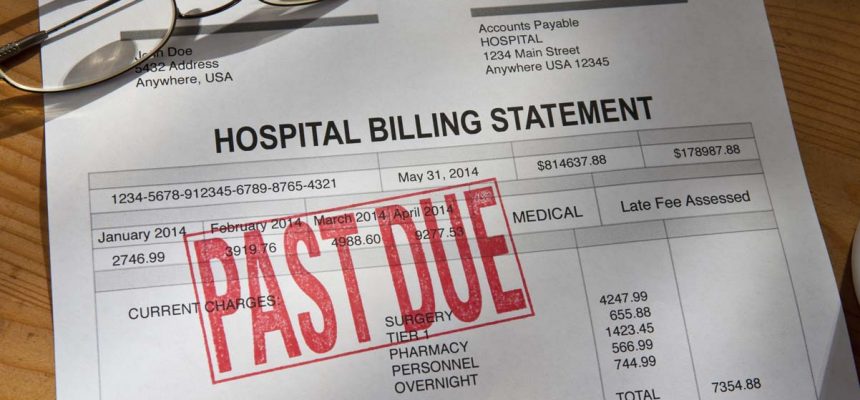Civilians Sent To Military Hospitals Can Incur Thousands In Debt
By Consumers For Quality Care, on January 29, 2020

Being taken to a military hospital for a traumatic injury — as was the case for Ricardo Gonzalez Jurado after a nasty fall in 2012 — can result in high levels of debt along with a federal government aggressively pursuing collections, regardless of a patient’s financial situation.
The Atlantic reported that after asking to be taken to a nearby hospital, paramedics made the call to bring Gonzalez Jurado to the Brooke Army Medical Center (BAMC), a military hospital outside San Marcos, Texas better suited to treat his severe injuries, which required surgery.
The initial bill from the military hospital came to a total of $28,000, which Gonzalez Jurado managed to negotiate into incremental payments. But after several years, the federal government became much more aggressive in their attempts to collect the debt, eschewing collection practices and regulations reserved for the private sector.
Even as many policy makers are looking for ways to protect Americans from burdensome medical costs, the government itself can go after civilian patients in ways that are as punitive as they are unproductive. Military hospitals like BAMC are, in fact, required to aggressively pursue debts, even if the patients are uninsured or low-income.
The debt collections for Gonzalez Jurado were erratic as well. The hospital at times raised the amount he would be required to pay each month, then later sent him a letter informing him his balance had been “paid in full” only to begin returning checks to him.
Then, out of the blue in 2018, the Treasury Department sent Gonzalez Jurado another letter claiming his unpaid debts totaled $35,016 — nearly $15,000 more than his previously owed balance. The Internal Revenue Service also took Gonzalez Jurado’s $1,700 tax refund in 2018.
Cases like Gonzalez Jurado’s are increasingly common across the United States. The Atlantic noted that US civilians currently owe nearly $200 million in debts to military hospitals, citing data from the Defense Health Agency.
While private debt collectors are beholden laws and regulations, military hospitals are not. Once the debt is transferred to the Treasury Department, they can withhold wages, tax refunds, or 15% of an individual’s Social Security income without a prior permission from a judge. Failing to pay up can prompt interest and other charges.
Just days before The Atlantic published their profile of Gonzalez Jurado’s situation, the Treasury Department sent him a letter “appearing to indicate that it cleared his debt.” But he is still worried they could come back with another collection attempt after the harrowing experience.
“I don’t know if I should celebrate, because I could get a bill later,” Gonzalez Jurado said.




